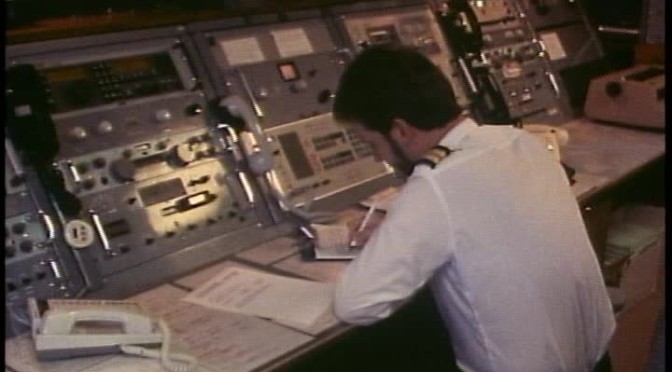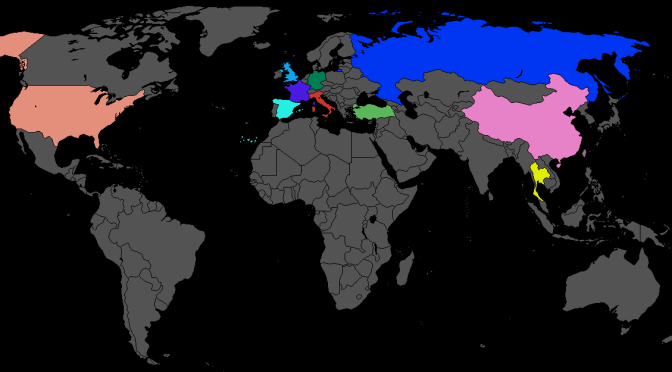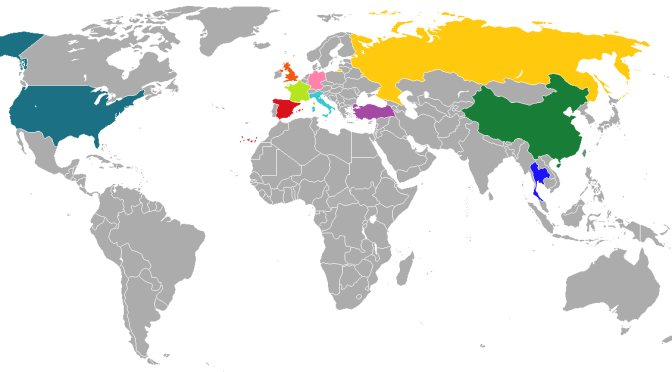What’s in a number
While looking at the number of Volunteer Examiner sessions list for California I noticed a whole lot of 0s in the number of sessions column. It seemed like a lot of hams that had signed up to be a VE weren’t following through.
I could think of a number of reasons why it might take a while to get going but the total number of VEs was holding fairly steady so it wasn’t just new people joining the ranks.
At first I was thinking it might be related to the fact that I live in California and after many years of experience in non-profit organizations the flake factor seems to be pretty high here in the Silicon Valley.
Speaking with fellow VEs at several sessions, many possibilities as to why people might not be doing sessions were put on the table. With all of these possibilities I was developing a curiosity on the national picture of the VE population and its participation levels.
I know statistics can be twisted and manipulated to mean pretty much anything the presenter wants them to say. Qualification, classification, and various selective filtering can certainly skew the apparent meaning of raw data. Even the interpretation of raw data alone can paint a picture far from reality without knowing the real story behind the acquisition and qualification of said data. All that being said, I am going to present my interpretation of some data.
Sources of data
When it came to the general population, where better to go that US Census Bureau. I say that tongue-in-cheek, but that’s another story. The state populations are the 2014 Estimated populations. Fortunately that data is far less important than the ham population data which is much more reliable.
Ham population data is coming from the FCC, the ARRL, and AH0A.org so I have much more faith in these numbers.
An extremely important distinction here is that the VE data is ONLY from the ARRL-VEC. There are other VECs, 13 others to be precise. (FCC VEC List) It is however fair to say that the ARRL-VEC does represent well over half of the VEs in the country. It is for this reason, I believe that the percentages will be fairly accurate, if not the total numbers.
In March 2015 the ARRL posted a report on the number of amateur radio operators along with some other demographic information. At that time the ham population in total was over 727,000 (727,354 according to AH0A.org) and the current total, according to the FCC is 733,626 as of November 14, 2015.
How it all breaks down
To put these numbers in context, the estimated 2014 US population is 322,675,314 people. That means that the 733,626 licensed hams make up only 0.23% of the national population. Of all the licensed hams in the country only 28,532 or 4.16% make up the VE population. Just for fun, this also means VEs make up 0.0088% of the national population.
Another small qualifier is in order here. District of Columbia, Guam, Puerto Rico, the US Virgin Island, and “other” are included in the total population, total hams, and the total number of VEs. They are however excluded from upper and lower limits in the following paragraphs mainly because of extenuating geographic circumstances, also they are not statistically representative individually when compared to states. Combined they make up 4,447,151 (1.37%) of the general population, 5,774 (0.78%) of hams and 53 (0.18%) VEs.
Looking at number of hams living in each state, Oregon and Washington share the top slot by having 0.44% each of the general population holding Amateur Radio licenses, well above the national average. Louisiana and New York share the fewest number of hams in their general populations at 0.14% each well below the national average.
When it comes to the distribution of VEs by state Wyoming comes on strong with a whopping 7.9% of their hams being credentialed examiners while Utah takes the lower end of the scale at 1.8% of its ham population credentialed.
Let’s take a look at the session counts. The national average of the VEs credentialed that are listed as not having participated in a test session is 25.48%. Alaska comes in at 69.33% of its VEs having no sessions under the belt while South Dakota has only 13.04%.
In the 1-4 session category three states are in a tight cluster, Kansas at 27.65%, Montana at 27.40%, and Louisiana at 27.14%. Alaska makes a huge drop here to only 10.67% of its VEs having fewer than 5 sessions.
I didn’t go into the state totals with the 5-9 session counts because the average here drops to only 13.7%.
When we look at the overall nationwide average of VEs having participated in less than 10 sessions it is 60.07%. Alaskan VEs are at 88% under 10 and North Dakota and only 46.59% under 10.
So what does this all mean?
Well, first off it means that hams are a rare breed among our fellow citizens. We make up only one quarter of one percent of the population, and less than five percent of hams volunteered to be examiners. Of that small volunteer group, less than forty percent are actively participating as examiners.
About 11,239 people, 1.5% of hams, 0.00348% of the general population, are active VEs who have participated in 10 or more sessions.
This also means my initial response to all those zeros was not only incorrect, my whole perception of those zeros was cynical, uncharitable, and a poorly constructed knee-jerk response. Wow, what a jerk.
The fact that this tiny group of people held a desire to serve their fellow hams at all is admirable and commendable. There are so many reasons why someone might have signed up and not been able to participate. Not the least of which is there may just not be a VE group nearby.
If you live in an area that only has 1 or 2 exam sessions a year and you just happened to have a previous commitment or something happens to delay or cancel one or both of those sessions or your ability to attend them, that’s another year of 0. Even if all went well, that 10 session bar, the one I arbitrarily set, could take 5 or 10 years.
It’s easy to forget that ham radio is a hobby sometimes. Even easier to forget that we are all volunteers. I live in a very active area, in a state that has the largest ham population in the country, 14.14% of hams in the US. Which interestingly enough still only makes up 0.27% of the state’s population.
It was never a matter of thinking badly of the individuals with 0s. The thought I had was “Why bother volunteering if you’re not going to get out and do it.” I should have thought that through more clearly. Even with all the advantages I mentioned, I sent in my VE application in December of 2014 and it wasn’t until April of 2015 that I worked my first session.
In conclusion
I have been fortunate enough to have participated in 18 exam sessions in the last 8 months, and I still have at least 2 more sessions before the year is up. I am grateful that I have had the opportunity to regularly participate in exam sessions and look forward to continuing the trend.
I would encourage those not as fortunate, to keep the faith and make a little extra effort to find a VE group, or start one of your own. There are few things more rewarding than handing an examinee their CSCE and congratulating them on their achievement. Young or old, new hams or upgrades, there is a spark in their eyes of all the good things to come. I am very happy and humbled to be a small part of that.
73,
~Jon KK6GXG





